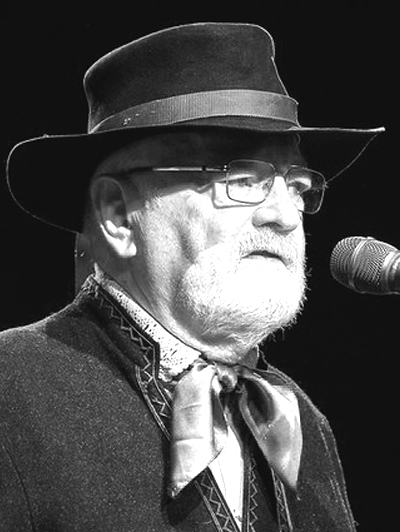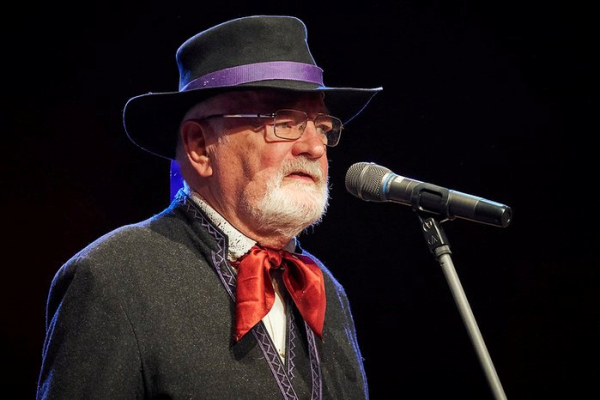Austris Grasis
1942-2026
Linguist, folklore researcher, musician, teacher
Austris Grasis was born on 1 June 1942 in Rudbarzi. He and his parents were war refugees in Bavaria, Germany. From 1949 to 1960 he studied at the Ingolstadt Latvian School and various German schools. Graduated from Münster Latvian Gymnasium in 1962. He practiced music during school years – studied the clarinet, played in jazz ensembles, sang and performed in various ethnographic productions.
He began his studies at the University of Münster (1962, art history, archaeology) and continued at the University of Munich (1963, African ethnology, European folklore and ethnography). In 1964 he went to Uppsala University in Sweden where he continued his studies in African research and European ethnography, then changed his field of study and graduated from the Department of German Studies with a Master's degree in Philology (1971). He then studied Baltic languages at the Stockholm University, where, under the supervision of Velta Ruke-Dravina (Velta Rūķe-Draviņa), he wrote his thesis on the terminology of Latvian folk songs and obtained a degree of Candidate (PhD) of Philology (1974).
During his studies he participated in the pop music group “Saules brali”, and together with his brother Uldis he founded the popular song duo “Brali Grasi”. The duo performed actively in Europe and America for many years, including at the congresses of the European Latvian Youth Association, the 2nd World Latvian Youth Congress, and the 3rd European Latvian Song Festival in Cologne.
In 1971, Grasis returned to Germany and for one year worked as a Latvian language teacher at the Latvian Gymnasium in Münster, then until the summer of 1972 – as a history and Swedish language teacher at two Swedish schools in the suburbs of Stockholm. In 1972, he became a lecturer in Baltic languages at the Friedrich Wilhelm University in Bonn and gave courses on Latvian, Lithuanian and Prussian. Until 1983 he worked together with the linguist Edite Hauzenberga-Sturma (Edīte Hauzenberga-Šturma), after which he continued her work in Baltic studies. He was one of the founders of the Latvian Folk University “Abrene” in France. As the director of “Abrene” (1987-1995) he made it a world centre of Latvian culture with opportunities for meetings, camps and studies; he paid great attention to the creation of a library as well as to the promotion of Latvian way of life.
In the 1980s he led the folk and pop music ensemble “Kelnes prageri” within which he participated in the World Free Latvian Song Days in Münster (1987) and the West Coast Song Festival in Los Angeles (1989). In 1988, he started playing in a duo with his son Kristaps.
Since the 1990s, Grasis has participated in specific projects in Latvia, for example, “Latvian language decontamination” (2000), “European Summer School” (2002), “Skaņkalnes Summer School” (2003, 2004, 2005 in Mazsalaca), he has also worked in centres for exiled Latvians - he was a lecturer at 3x3 camps, taught at Garezers Summer High School and Australian Summer High School in Aldinga, Dzintari.
Since the mid-1960s he has published poems in periodicals and in the joint collection “Ogles kvelo” (Copenhagen, 1968) with his brother Uldis. He has published articles in various periodicals in Germany, Sweden and Latvia.
Grasis was the musical director of the dance performance at the 2nd World Free Latvian Song Days in Münster (1984) and the concert director of the folk ensemble “Kelnes prageri” at the 3rd World Free Latvian Song Days in Münster (1987).
Grasis was awarded the Order of the Three Stars, IV Rank (2012), and received the Cabinet of Ministers Award for Significant Achievement in the Development of the Latvian State, Contribution to the Latvian Community and Strengthening Latvian Identity (2019).
Information sources
Austris Grasis. (b.g.). Literatūra - Personas - Austris Grasis (literatura.lv)


